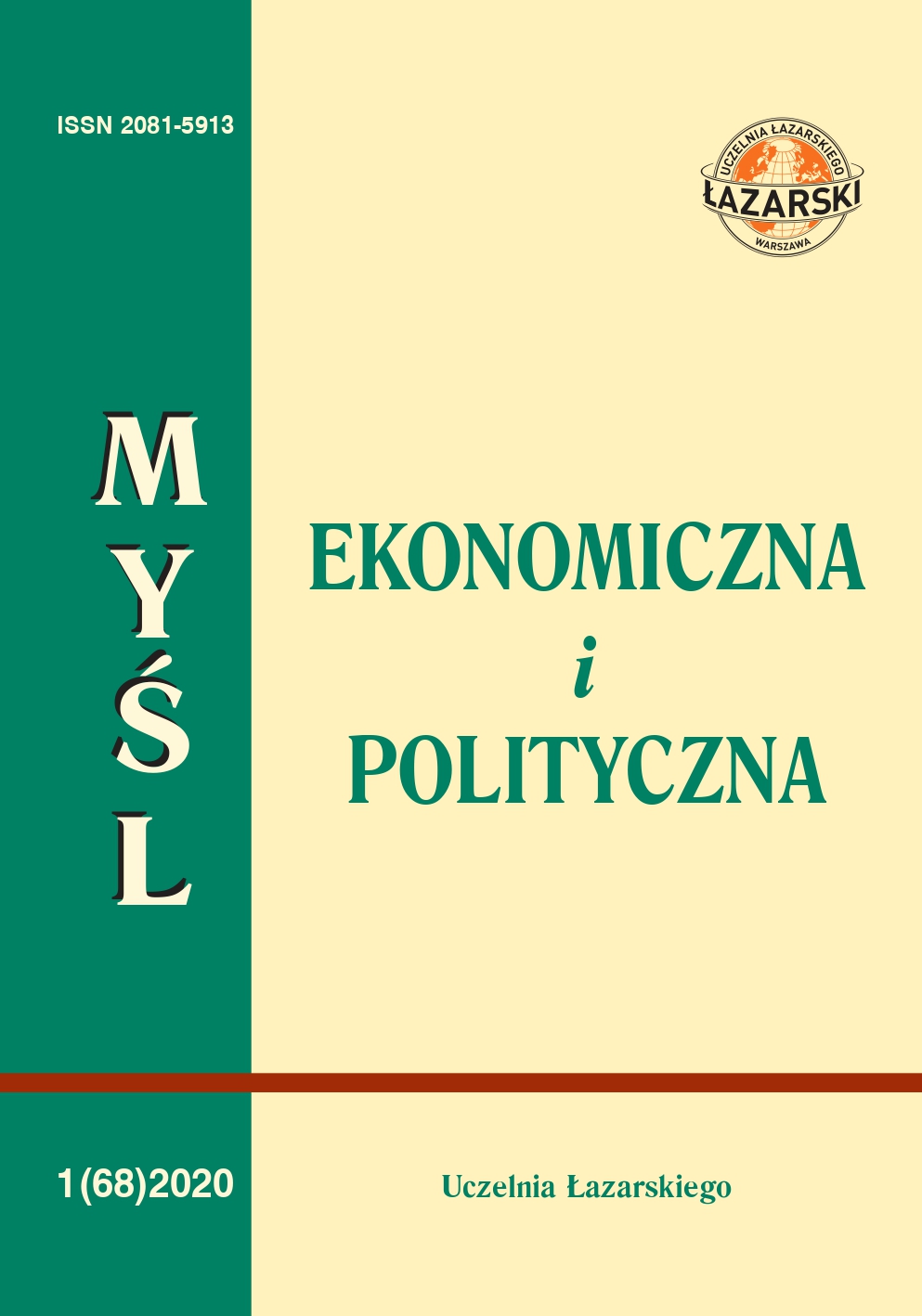Economic egoism. True or false?
Keywords:
economic egoism, fiscal and financial egoism, commercial egoism, protectionism, economic nationalismAbstract
The aim of the article is to analyse the economic aspects of the phenomenon
considered. It is usually perceived in ethical and moral terms, and
the conclusions drawn are superficial, aimed at showing symptoms. However,
the analysis undertaken in the article is an attempt to identify the efficient
causes. Everyone seems to acknowledge the obvious fact that accumulating
wealth is inseparable from human nature and market economy mechanisms.
This results in huge socio-economic inequalities, which are widely criticized.
This is even more the case when inequalities result from fraud and tax evasion.
Although the owners of great fortunes try to pacify the unfriendly or
even hostile attitude towards them, including through charity, however, this
does not fundamentally address the rising gap between incomes at national
and global level among various socio-professional categories. Another very
telling sign of economic egoism is the rise of protectionism in international
trade in recent years. Fuelled by economic nationalism, it disorganizes global
exchanges by breaking down supply chains, which are equally important for
individual economies and the global economy. If you add to this other phenomena,
such as the coronavirus epidemic, which reinforce even further the
negative consequences of economic egoism, then we are faced with a gloomy
picture of the future of the world economy. This should mobilize us even
more in the fight against its negative manifestations.
Downloads
Published
Issue
Section
License

This work is licensed under a Creative Commons Attribution-NonCommercial-ShareAlike 4.0 International License.

